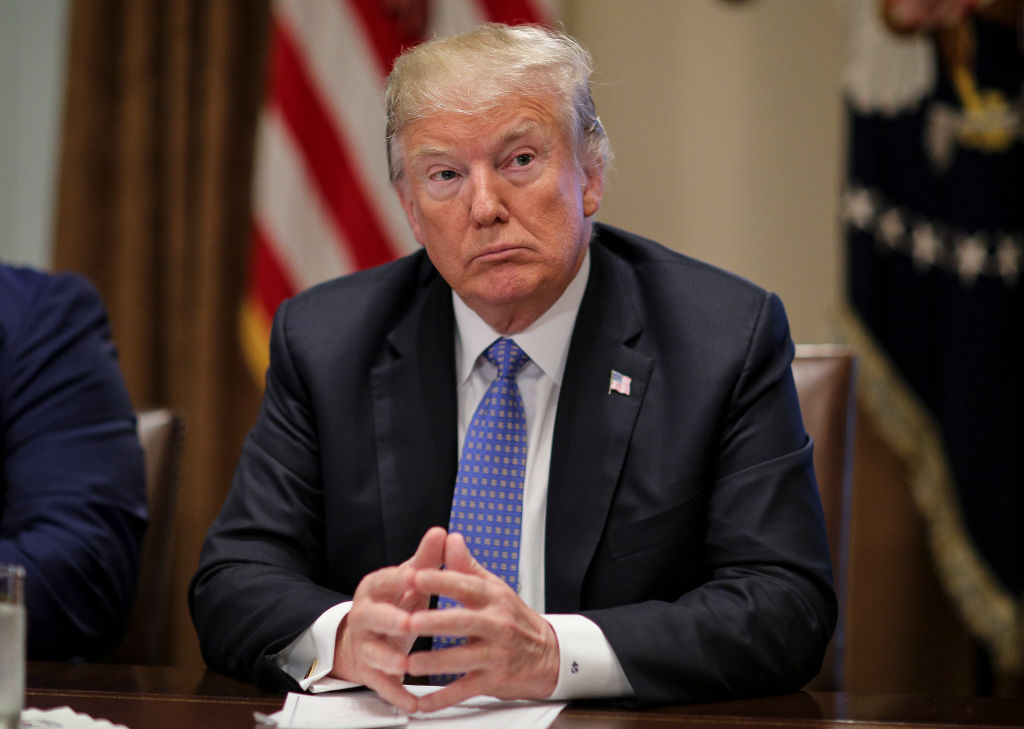Ardent opponents of Donald Trump spend their days proclaiming in ever-shriller tones what a dire threat he poses, not just to the American Republic, but the entire international order. His ardent supporters tell themselves a similar story, but with different inflections; in the mythical rendering that exists only in their minds, Trump is a lonely crusader against “globalism,” constantly under siege by hordes of paedophilic “deep state” vipers hell-bent on sabotaging his efforts to put America first.
Both these versions of Trump are quite exciting as competing Homeric tales, and each provide fodder for click-hungry media entities desperate to portray even the most piddling news event as the latest installment in some epic saga. But neither happens to be particularly tethered to reality.
And that’s the curious dynamic we’re beset with in the age of Trump, where the most dominant interpretations of his presidency are also the most extreme. Feeding off one another, they together create this weirdly polarised discursive landscape, in which an imaginary Trump sets the terms of the debate. And they’ve resulted in a widening epistemic gulf which appears destined to drive American politics permanently into the madhouse. Trump himself is perfectly happy to egg this all along, with his persecution complex and fantastical self-conception. It’s a recipe that at times can seem designed by a malevolent God with the explicit intention of making everyone completely nuts.
Such crazed tendencies are amplified by social media, where the most exaggerated rhetoric often rises to the top of the heap and the more restrained rebuttals go ignored. As in some ways the ultimate creature of the social media mentality – his ascendance would not have been possible without it – Trump eagerly ushers both his fans and detractors further down this wormhole of unreality.
Take, as an example, the week-long psychotic break last month over Trump’s alleged destruction of NATO. Supposedly, Trump’s mean comments to Angela Merkel signaled the death of the post-war order, and also proved his servitude to a dark new Putin-led system. While panicked elites wrote countless columns to this effect, and think tank scholars composed the obituary of the West, what in the end did Trump’s performance at the summit in Brussels really achieve? Contrary to their sky-is-falling mantras, Trump effectively strengthened NATO by securing at least nominal commitments to increased defense spending by European member states, basically in line with what his predecessor had sought. The communique issued at the meeting’s conclusion was filled with all the same banal paeons one would expect in such a document, and Trump congratulated himself for making NATO “rich.” Far from shattering the alliance, Trump essentially confirmed its resiliency by showing it can withstand the theatrical ramblings of a president who may on some superficial level have complaints with how it is constituted, but can be placated with strategic flattery.
As it turned out, there was no dramatic disruption, no irreparable dissolution of norms. But it served the purposes of the panicked elites to pretend that apocalypse was near, because this gives their doomsaying a sheen of historical significance. Likewise, Trump’s pro-NATO stance presumably came as a disappointment to the anti-globalist crowd, who would have wished for him to up-end the alliance in accordance with the perception that he’s humanity’s only recourse against meddling internationalist technocrats. But he didn’t up-end anything, or even threaten to do so. Instead, he merely gave the status quo some Trumpian flare. Yet somehow both his supporters and opponents came away with the impression that some monumental threshold has been passed. The epistemic gulf widened. Everyone got a little nuttier.
It was just another episode of what has become a comically recurrent routine: centre-left and centre-right elites warn of an imploding world order. (When will we know for sure? Will there be a death certificate?) In response, Trump’s more conspiratorially tinged backers cheer this alleged demise, and credit Trump for the development. Eventually it becomes apparent that the world order will continue on as before, but neither group re-examines their prior assumptions. The cycle repeats, with intensifying insanity.
Elites prophesy the end of days so often that their cries now register as something of a punchline. They depleted outrage as a resource long ago, probably sometime shortly after Trump descended the escalator. Outrage for them has become a hobby and a branding opportunity, rather than what it could legitimately be: a way of giving life to genuine grievances, which could resonate with the wider public. Instead, their outrage is just a projection of their anxieties about how tenuous the institutions in which they are professionally invested have proven to be.
Meanwhile, die-hard Trumpists take these exhibitions of elite paranoia to be evidence that their man really is the radical departure they’d like to believe. For him to ignite such frenzies, they reckon, validates the grandiose image of him they’ve constructed. But Trump is clearly content for the system to remain roughly the same. He just wants to be the one who presides over it.
The national pastime of deciphering Trump’s psyche so dominates daily political conversation that it has become not just an occasional novelty, but an oppressive obstacle to carrying out a discourse with any grounding in rational fact. It will never be as emotionally satisfying or financially lucrative to paint Trump as more or less a continuation of the status quo with some tonal differences. But it’s the closest thing we have to the truth.


















